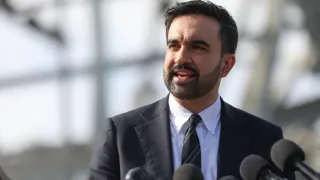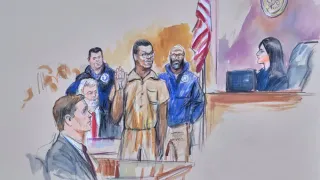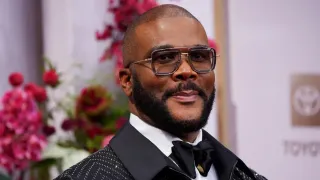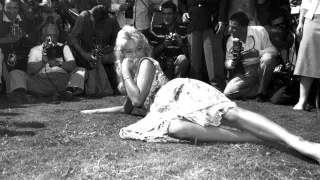December 22, 2023
Pornhub Owner Agrees to Pay $1.8M and Independent Monitor to Resolve Sex Trafficking-related Charge
Philip Marcelo READ TIME: 3 MIN.
The owner of Pornhub, one of the world's largest adult content websites, has admitted to profiting from sex trafficking and agreed to make payments to women whose videos were posted without their consent, federal prosecutors in New York announced Thursday.
Aylo Holdings, the website's parent company, reached a deferred prosecution agreement to resolve a charge of engaging in unlawful monetary transactions involving sex trafficking proceeds, according to the office of Breon Peace, U.S. Attorney for the Eastern District of New York.
The deal calls for the Montreal-based company to pay more than $1.8 million to the U.S. government, as well as make separate payments to the individual women harmed by the trafficking. It also requires appointment of an independent monitor for three years, after which the charges will be dismissed.
"It is our hope that this resolution, which includes certain agreed payments to the women whose images were posted on the company's platforms and an independent monitorship brings some measure of closure to those negatively affected," Peace said in the statement.
James Smith, head of the FBI's New York office, said Aylo Holdings "knowingly enriched itself by turning a blind eye" to victims who told the company they had been deceived and coerced into the videos.
Prosecutors said Aylo has agreed to pay victims compensation, but details such as who is eligible and how they can apply will be forthcoming.
The charge stemmed from Aylo's role in hosting videos and accepting payments from GirlsDoPorn.
Operators of that now-defunct adult film production company were charged and eventually convicted of a range of sex trafficking crimes, including coercing young women into engaging in sexual acts on camera that were then posted on Pornhub and other adult sites without their consent.
Prosecutors say that between 2017 and 2020, Aylo received money that company officials knew or should have known was derived from GirlsDoPorn's sex trafficking operations.
They also say the company didn't act swiftly or thoroughly enough to remove all the nonconsensual videos, even after a number of the women appealed directly to the company.
Aylo operates free and paid adult websites where content providers can post and distribute adult videos, with Aylo generating revenue through licensing agreements, advertisements and subscriptions.
According to prosecutors, the company received more than $100,000 from GirlsDoPorn as well as roughly $764,000 in payments from advertisers attributable to the production company.
Aylo Holdings, which was formerly known as MindGeek, said in a statement that it "deeply regrets" hosting content from GirlsDoPorn on its streaming video platforms.
Aylo said GirlsDoPorn provided the company with written consent forms purportedly signed by the women but that it was unaware the forms were obtained through fraud and coercion.
The company also said prosecutors did not find Aylo or its affiliates violated any federal criminal laws prohibiting sex trafficking or the sexual exploitation of minors.
"Aylo is not pleading guilty to any crime, and the Government has agreed to dismiss its charge against the Company after 3 years, subject to the Company's continued compliance with the Deferred Prosecution Agreement," the company said.
Thursday's agreement filed in federal court in Brooklyn comes after the European Union on Wednesday announced that Pornhub and two other major porn sites would be required to verify the ages of their users, expanding the reach of the Digital Services Act designed to keep people safe on the internet.






